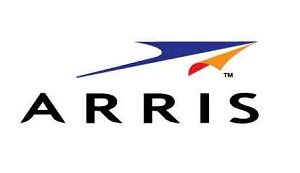Analysts: Comcast-TWC Merger Puts Arris In Prime Position

Comcast and Time Warner Cable purchase broadband gear and software from dozens of suppliers, but, of that group, analysts agreed that Arris is in the best position to make the most hay from Thursday’s proposed MSO mega-merger.
And investors apparently concurred, as shares in Arris jumped 7.64% ($1.98) to close at $27.88 each on Thursday (Feb. 13).
That’s due in part to the fact that Arris, which bought Motorola Home last April and is now 7.7% owned by Comcast, is well positioned with both MSOs in the home and out on the network, and will likely only shore up that spot if and when the deal is consummated.
On the set-top side, Comcast has already begun to deploy HD-DVRs from Arris for X1, the MSO’s next-gen platform. TWC, which has historically leaned more heavily on Cisco Systems/Scientific Atlanta, is also gearing up to deploy Arris gateways for its next-gen product. Arris, as well as U.K.-based set-top maker Pace, Comcast’s original source for boxes powering the X1 platform, should continue to benefit post-deal when Comcast standardizes on X1 in the TWC territories.
As Comcast expands X1, it will likely also accelerate deployments of more downstream capacity and next-gen Converged Cable Access Platform (CCAP)-based equipment. That also fits well with the portfolio of Arris, which is shipping CCAP-pointing gear to both operators now, Infonetics Research analyst Jeff Heynen said.
Comcast, added Raymond James analyst Simon Leopold in a research note issued Thursday, has “been the pioneering proponent of the migration to the CCAP…an industry roadmap which ultimately sees cable operators moving to an all IP-based network.”
“Arris has the most to gain,” agreed National Alliance Capital Markets analyst Brian Coyne, who reiterated his “Buy” rating and a $30 target price on shares of Arris after the deal went down.
Multichannel Newsletter
The smarter way to stay on top of the multichannel video marketplace. Sign up below.
While Arris appears to be in a prime spot as Comcast and TWC look to merge, the deal is also entering play as Cisco Systems’ cable business continues to ride through a rough patch. On Wednesday, Cisco said service provider video revenues , which include set-top boxes, dropped 22%, to $957 million, during its fiscal second quarter. Cisco shares closed down 2.54% ($0.58) to $22.27 each Thursday.
More Vendor Price Pressure?
Although, Comcast and TWC believe the merger will produce annual capex synergies of $400 million, Leopold points out that it’s small potatoes next to their combined budgets of $10 billion.
He expects most of those synergies to tie into backoffice systems and less so on network infrastructure and consumer premises equipment. “TWC and Comcast do not have overlapping customer bases, so there are no meaningful network synergies,” Leopold said in an interview.
“In our view, regardless of the ultimately likelihood of a completed deal, the tone across the industry is that capital investments must continue in order for the cable industry to remain competitive with both Telcos as well as other next generation over-the-top alternatives,” Leopold said in a research note issued Thursday.
Coyne, in his research note, agreed that the spending environment from the proposed Comcast/TWC deal offers a more positive outlook for vendors than what’s been seen from past, large mergers, when vendors have been subjected to delays or abrupt halts in spending as MSOs re-evaluated budgets and focused on consolidating their physical plant.
This time, however, both Comcast and TWC need to “aggressively deploy new video and data platforms that rely greatly on a handful of companies, with Arris as arguably the most important technology partner for both operators,” Coyne noted.
And analysts don’t believe that a bigger Comcast necessarily means that Arris, Cisco, Harmonic and other suppliers are going to suddenly get crushed by even thinner product margins. Margins are already tight, and among the two MSOs, TWC, more so than Comcast, has been particularly notorious when it comes to squeezing suppliers.
“It’s already a brutal environment [for vendors],” Leopold said. “I don’t know if I could argue that it will become more brutal,” as a result of a merger.
Heynen agreed that Comcast will need to keep its suppliers healthy enough to keep its engines humming, noting that the Reference Design Kit (RDK) initiative already aims to commoditize set-tops and gateways.
“I don’t think Comcast will want to jeopardize the supply chain any more by lowering the margins,” Heynen agree. “I don’t think [the deal] will have much of an impact on the equipment I track.”
“Comcast and Time Warner Cable are getting the best pricing anyway,” Coyne said. “Short of deal-related hiccups, I don’t think the environment has too much farther to go in terms of those price pressures.”
